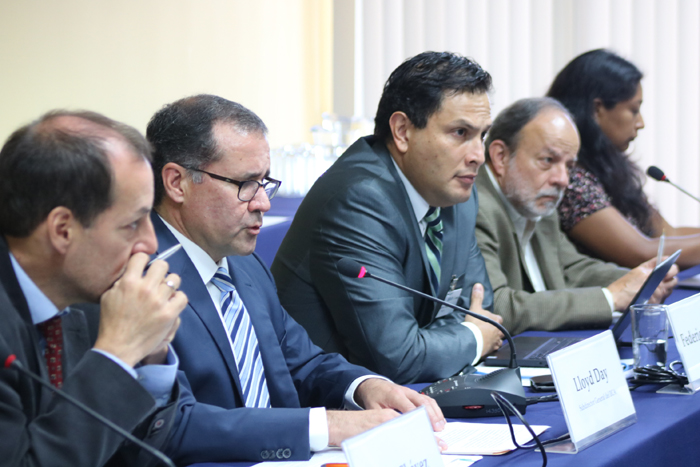Implementation of the project started in Costa Rica where experts shared their knowledge on this topic to enrich learning materials and revise the results after the initiative concludes.

San Jose, 25 August 2017 (IICA). A new initiative, promoted by three important international organizations, seeks to improve the quality and effectiveness of the results of projects that have promoted rural development in different countries of America, Africa, and Asia through capitalization and adequate systematization of good practices and experiences.
On Tuesday 22 August, the initiative for Latin America formally began in Costa Rica. Close to 40 representatives from public and private entities from 12 countries of the region met and shared experiences regarding interventions in the field. The participants in the event provided their input to improve the content of the materials that the personnel responsible for implementing the project have created in order to be used in online training events at a later time. In addition, knowledge management tools were also validated to take advantage of this technique.
This project has a global scope and is being executed by the Inter-American Institute for Cooperation on Agriculture (IICA), the Technical Centre for Agricultural and Rural Cooperation (CTA), and the Food and Agriculture Organization of the United Nations (FAO), with financial support from the International Fund for Agricultural Development (IFAD).
The initiative is aimed at professionals with different levels of experience who belong to fields related to agriculture. The goal of the project is to benefit rural communities by promoting the use of the results of the systematization in their development processes.
“IICA is pleased to join efforts with three global partners and to take advantage of this alliance to bring together other experts from organizations interested in seizing opportunities linked to agriculture and rural life in our Member States. The region has many alternatives to solve agricultural and rural problems; if those can be systematized, they could be suitable models for adding value to the world”, stated the Secretary of Planning and Evaluation of IICA, Federico Sancho.
Sancho explained that the capitalization or systematization of these experiences is a valuable technique for learning and adding value. A large proportion of the knowledge generated from cooperation and development efforts is neither documented nor analyzed critically with the actors, the systematization of experiences must be carried out in order to generate lessons learned and options for possible applications.
“Carrying out this task on a permanent basis will allow us to better comprehend the effectiveness of the different programs and actions in this area around the world in order to understand the features that contribute to the success, escalation, or failure of an initiative”, Sancho stated.
According to the project leader and CTA representative, Jorge Chavez-Tafur, this inter-institutional project ensures that the institutions and organizations for development adopt and use the experiences capitalized when designing their projects. By doing so, their knowledge of agricultural and rural initiatives that they promote will be nurtured.
“We do not just want to draft documents or train people; we seek to institutionalize this approach in the different organizations that we are part of to benefit rural development”, Chavez-Tafur stated.
On completion of the project, the delivery of validated training material is expected, in addition to improvements in the capacities of public and private actors and the creation of a network of experts and interns. Also, the capitalized experiences will be made available online from the beginning to guide and direct the efforts in the best way possible.
“Our cooperation will be strengthened if we achieve the goal of the project, which is to institutionalize and systematize experiences. All knowledge that we generate will be put to better use and it will be made available in order to enable others to understand what we, as IICA, promote”, stated Lloyd Day, Deputy Director General of IICA.
More information:
Federico Sancho, Secretary of Planning and Evaluation of IICA. federico.sancho@iica.int











